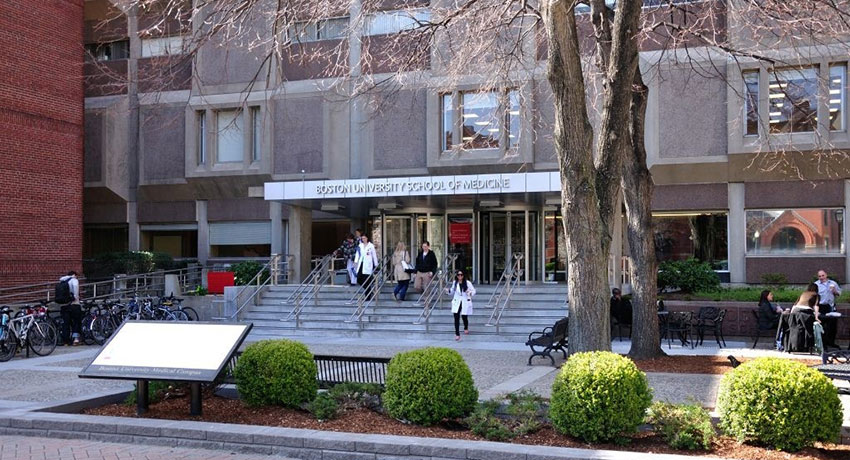Boston Doctor Receives National Award For Alzheimer’s Research

Boston University School of Medicine image provided
Alzheimer’s disease is the sixth leading cause of death in the United States. In addition, between 2000 and 2010, the number of mortalities as a result of Alzheimer’s increased 39 percent, according to the CDC. Although plenty of research has been conducted to study the causes and effects of this disease, there is still quite a long way to go. That’s where Dr. Benjamin Wolozin comes in.
Wolozin, a professor of pharmacology and neurology at Boston University School of Medicine, was recently awarded the $450,000 Zenith Fellows Award by the Alzheimer’s Association in order to continue his extensive Alzheimer’s research. Wolozin is currently studying the pathogenesis—or the development—of Alzheimer’s and Parkinson’s disease. Specifically, this award will help fund his study which is trying to determine the molecular foundation for the proteins that are responsible for Alzheimer’s.
According to Wolozin’s research, the misfolding of proteins called tau proteins in Alzheimer’s patients’ genes causes neurofibrillary tangles which lead to drastic decreases in cognitive function. The Zenith Award, distributed over the course of three years, will help to drive this study forward. Wolozin hopes to use the money to analyze Alzheimer’s molecular and cellular samples in order to determine the signatures of the “stress granules” that cause the tangles in the brain.
In a press release, Wolozin said:
“This work could lead to a new understanding of disease mechanisms and novel therapeutics that are able to prevent pathological misfolding of tau protein. The Zenith Award emphasizes the importance of this work.”
Wolozin’s laboratory also focuses on Parkinson’s research, although Alzheimer’s is the specific focus of the Zenith Award-winning research. Wolozin has previously examined the correlation between environmental factors and the Parkinson’s gene, and has studied how cholesterol effects Alzheimer’s disease.
This is not the first grant Wolozin has been awarded this year for his work in Alzheimer’s research. Along with Dr. David Harris of Boston University School of Medicine, Wolozin received the $250,000 Massachusetts Neuroscience Consortium Award in July. He used that money to further his development of molecular compounds that could serve as therapeutic treatments for Alzheimer’s in the future.

